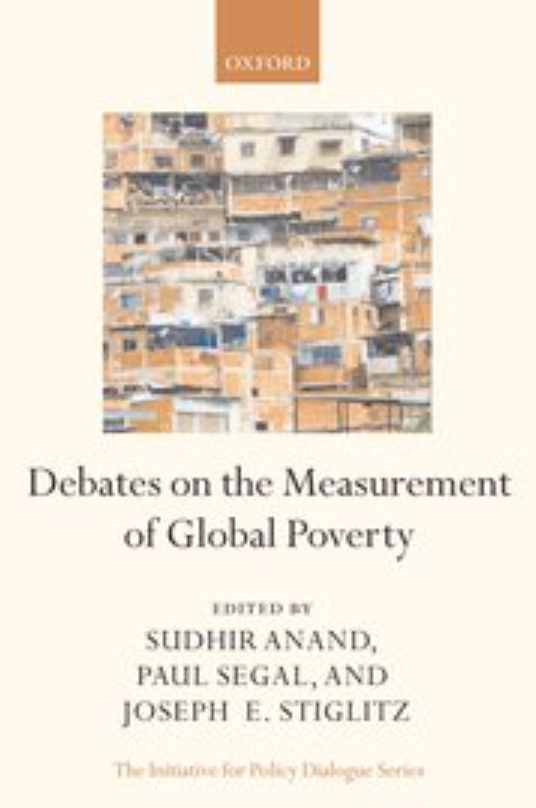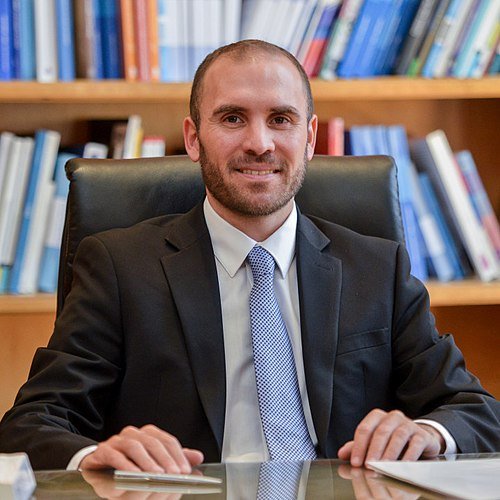
The international community’s commitment to halve global poverty by 2015 has been enshrined in the first Millennium Development Goal. How global poverty is measured is a critical element in assessing progress towards this goal, and different researchers have presented widely-varying estimates.
Topics covered include the controversies surrounding the definition of a global poverty line; the use of purchasing power parity exchange rates to map the poverty line across countries; and the quality, and appropriate use, of data from national accounts and household surveys.
Both official and independent estimates of global poverty have proved to be controversial, and this volume presents and analyses the lively debate that has ensued. The chapters in this volume address a range of problems in the measurement and estimation of global poverty, from a variety of viewpoints.
About the Editors
Paul Segal
Research Fellow
Oxford Institute for Energy Studies
Paul Segal is a Research Fellow at the Oxford Institute for Energy Studies and a Junior Research Fellow at New College, Oxford. His research covers global poverty and inequality, and the economics of resource-rich countries, with a particular focus on the distribution of income. Prior to completing his DPhil at Nuffield College, Oxford, in 2006, he was a Research Fellow at Harvard University’s Global Equity Initiative, and a Consultant Economist at the UNDP, where he worked on the Human Development Report 2002. He has been a Visiting Scholar at the National Bureau of Economic Research in Cambridge, Massachusetts, and at the Centro de Investigacion y Docencia Economicas in Mexico City.
Joseph Stiglitz
President
Initiative for Policy Dialogue (IPD)
Joseph E. Stiglitz is President of the Initiative for Policy Dialogue, and Chairman of the Committee on Global Thought at Columbia University. He is University Professor at Columbia, teaching in its Economics Department, its Business School, and its School of International and Public Affairs. He chaired the UN Commission of Experts on Reforms of the International Monetary and Financial System, created in the aftermath of the financial crisis by the President of the General Assembly. He is former Chief Economist and Senior Vice-President of the World Bank and Chairman of President Clinton’s Council of Economic Advisors. He was awarded the Nobel Memorial Prize in Economics in 2001.
Sudhir Anand
Professor of Economics
Oxford University
Sudhir Anand is Professor of Economics at the University of Oxford and Official Fellow of St Catherine’s College, Oxford. His recent research has focussed on inequality, poverty, and undernutrition; human development; population ethics; health economics; and the theory and measurement of economic inequality. He has been Visiting and Adjunct Professor at the Harvard School of Public Health and served as Acting Director of the Harvard Center for Population and Development Studies. He has also been Visiting Professor at the Kennedy School of Government at Harvard University, and is currently Visiting Professor at the Harvard Medical School. He chaired the WHO scientific committee on health systems performance assessment.
About the Authors
Krishnamurthy Sundaram
Professor
Delhi School of Economics
University of Delhi
David Sahn
International Professor of Economics
Cornell University
Suresh D. Tendulkar
Executive Director of the Center for Development Economics
Delhi School of Economics
University of Delhi
Stephen Younger
Associate Director, Food and Nutrition Policy Program
Cornell University
Shaohua Chen
Development Research Group
World Bank
Martin Ravallion
Development Research Group
World Bank
Sanjay Reddy
Associate Professor of Economics
The New School
Thomas Pogge
Leitner Professor of Philosophy and International Affairs
Yale University
Surjit Bhalla
Managing Director
Oxus Research and Investments
T.N. Srinivasan
Professor, Department of Economics
Yale University
Bettina Aten
Office of the Director
US BEA
Alan Heston
Professor Emeritus
University of Pennsylvania
Angus Deaton
Professor of Economics and International Affairs
Princeton University
Robert Johnston
Professor of Economics
Clark University
Ivo Havinga
Chief of Economic Statistics Branch
UN
Gisele Kamanou
Poverty Statistics Expert
United Nations
Viet Vu
Statistics Division
United Nations
Sakiko Fukuda-Parr
Professor of International Affairs
The New School
Sakiko Fukuda-Parr is Professor of International Affairs at the New School. She is a development economist working in the multidisciplinary framework of capabilities and human development, and currently works on relating human rights and development policy, conflict prevention, and global technology. She was previously a research fellow at the Kennedy School of Government. From 1995 to 2004, she was lead author and director of the UNDP Human Development Reports. She serves on the Board of the International Association for Feminist Economics, and of several NGOs that advocate human rights and technology for development. She was appointed by the UN Secretary General to the Committee on Development Policy.
David Stewart
Albert Berry
Professor Emeritus
University of Toronto
Carl Riskin
Professor of Economics
The Graduate Center, City University of New York
Qin Gao
Assistant Professor
Fordham University
 Joseph Stiglitz
Joseph Stiglitz Sudhir Anand
Sudhir Anand

 Martín Guzmán
Martín Guzmán